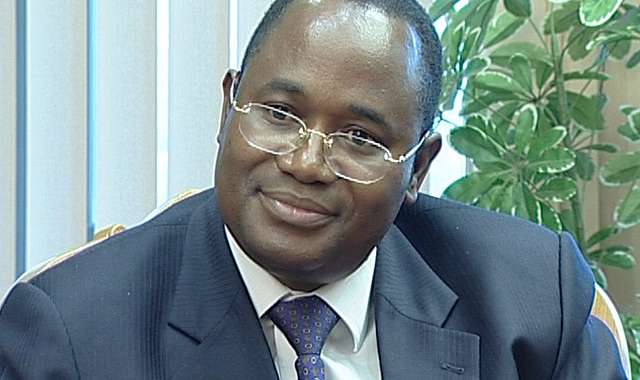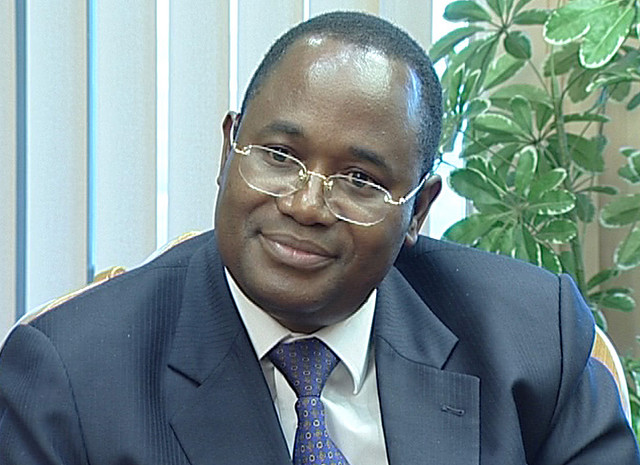Gono leaves RBZ

Happiness Zengeni Business Editor
THE search for a new governor for the Reserve Bank of Zimbabwe has begun after Dr Gideon Gono, who had been at the helm of the apex bank for 10 years, bade farewell to the institution yesterday. Dr Gono’s term officially ends today.
Deputy Governor Dr Charity Dhliwayo has been appointed to act in the position for the next three months, after which the position rotates with the other deputy governor Dr Kupukile Mlambo also acting, in the event no appointment will have been made.
In a farewell statement yesterday, Dr Gono said: “to this end . . . Dr Charity Dhliwayo will be the first of the two to act as Governor for the period December 1 2013 to February 28 2014 and Dr Kupikile Mlambo to also act for three months after, before reverting back to Dr Dhliwayo if no decision is made before then,” Gono said.
“The fact of the matter is that I leave these premises today (yesterday) after 120 months of continuous occupation and it is a long time indeed. Even the law recognises that this is a lengthy period and says one must leave to give way to a new occupant.”
The appointment of a new governor is expected to boost confidence in the banking sector especially after Cabinet this week approved to assume the RBZ’s US$1,35 billion debt. The debt assumption is expected to pave way for the recapitalisation of the central bank and the restoration of its lender of last resort function.
Some of the names currently being speculated for the post include Dr John Mangudya, former RBZ governor Edwin Mashiringwani and Ministry of Finance director Andrew Bvumbe.
Dr Gono himself was reported to have proposed the names of his two deputies, Dr Dhliwayo and Dr Mlambo as his successors. However, deputy governors, even worldwide have never assumed the role of governor except on an acting basis.
At the time Dr Gono took over from Dr Leonard Tsumba, the economy was going into a slide. He came up with a number of policies, though widely criticised, in a bid to try and keep the country’s economy afloat. Dr Tsumba’s term expired on June 30, 2003 and Charles Chikaura was appointed acting governor for six months until Dr Gono took over.
Dr Gono was first appointed central bank governor in November 2003 and was re-appointed in November 2008 for another five-year term.
Dr Gono “presided” over an economy which was going through its worst spell on the back of an economic sanctions regime with some observers saying the amount of work he needed to execute was too much for him to halt the decline.
“Whatever I did had authorisation from the Government of the day,” said Dr Gono in an interview with AFP on October 8, 2009.” I prevented this country from descending into chaos like Somalia.”
During his tenure, Zimbabwe experienced cash and fuel shortages, the highest inflation in the world — 231 million percent at the last official count before dollarisation in June 2008 – corruption, high unemployment and the collapse of the health, education and agriculture sectors.
Illegal forex deals were rampant although Dr Gono known for such terms as “failure is not an option” or “irrational exuberance” partially legalised the use of foreign currency in January 2009 by allowing some shops to transact in hard currency after the Zim dollar had become worthless. In February, Government — through then acting finance minister Patrick Chinamasa — adopted the use of multi-currencies, mostly the US dollar.
He made earth-shattering decisions upon taking the office of governorship by closing a number of banks engaging in non-permissible activities and firing several chief executives in the process. A number of banks and financial institutions that were violating provisions of banking laws had their operating licences cancelled while some were placed under curatorship.
Dr Gono printed large quantities on money to support production, with the economy reeling under western imposed sanctions, leading to the demise of the local currency and collapse of the banking system.
He rebased old bank notes on August 1 2006 and introduced new ones. Prior to rebasing the currency Z$1 000 was the lowest denomination, which was reduced to Z$1 after three zeros were slashed.












Comments